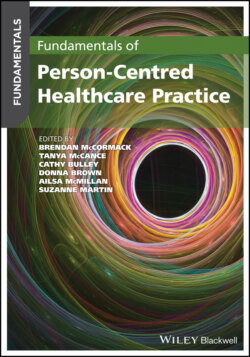Читать книгу Fundamentals of Person-Centred Healthcare Practice - Группа авторов - Страница 70
Different aspects of self
ОглавлениеNow that we have highlighted the complexities around establishing what constitutes self, we will focus on some of the aspects of self as identified through the literature. The self‐concept is the idea we have of ourselves, of who we are in terms of our personal attributes (physical, emotional, social, etc.). It develops as we communicate and interact with others (particularly significant others) during the early stages of our lives, but also as we grow up. It is shaped by the attitudes and reactions others have towards us (Freshwater 2002). Our self‐concept does not necessarily align with the way other people see us. According to Rogers (2003, p. 501), the self‐concept originates from both the person's direct experiencing (and the values attached to these experiences) and from the ‘distorted symbolisation of sensory reactions’. The latter results in the unconscious adoption (‘introjection’) of values and concepts taken from others (for example, from our parents) as if they were experienced directly. The person can experience freedom from inner tension ‘when the concept of the self is at least roughly congruent with all the experiences of the organism’, with its genuine reactions and hence starts to feel more his or her real self (Rogers 2003, p. 513).
